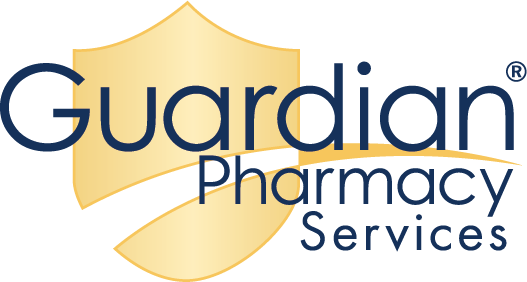Breaking Down Barriers: How LTC Pharmacies Improve Medication Affordability
The pursuit of health equity is a defining challenge of our times, grounded in the belief that every individual—regardless of age, gender, ethnicity, or socioeconomic status—should have a fair and just opportunity to attain their highest level of health. Long-term care (LTC) pharmacies play a unique role in promoting health equity for older adults and individuals with complex medical needs by directly addressing cost-related barriers that contribute medication non-adherence.
Making Medications More Affordable
Economic disparities often result in unequal or inconsistent access to vital medications, making adherence impossible for some patients. The reality is:
-
-
82% of adults think the cost of prescription drugs is unreasonable
-
31% of adults say they have not taken a prescription medication as directed because of cost
-
25% of older adults say it’s difficult for them to afford their prescription drugs
-
LTC pharmacies prioritize minimizing out-of-pocket costs, ensuring that patients across all payor types can afford their medications. This is achieved in two ways:
-
- By helping ensure patients are in the best benefit plan to meet their healthcare and financial goals
- By optimizing the benefits available to them in their current plan
Evaluating Benefit Plans
Due to disparities in healthcare access and other social, economic, and environmental disadvantages, navigating healthcare benefit plans can be daunting, especially for older adults, individuals with disabilities, and other marginalized populations.
Individuals served by an LTC pharmacy can expect to receive personalized benefit plan reviews, providing them with the necessary information to select a plan that best aligns with their healthcare requirements and financial capacities. LTC pharmacies understand that the key to matching individuals with a best-fit plan is effectively communicating the opportunities available to them. For example:
-
- LTC pharmacy staff can help by reviewing an individual’s current coverage, providing a comparison of available plan options based on their current drug regimen, and educating them about the enrollment process.
- They can provide guidance on how to add valuable benefits, such as vision, dental, or over-the counter medication benefits.
- They can also provide information on how to change plans during the Annual Medicare Open Enrollment Period or during a Special Enrollment Period (SEP). A SEP provides a unique opportunity for many LTC residents to add or change benefits due to a qualifying life event, such as a change in care setting or change in benefit eligibility.
- For additional coverage questions, or assistance in enrolling in a plan, staff can connect individuals with a licensed Medicare agent.
Optimizing Current Benefits
Denied claims can mean delayed or skipped medications. LTC pharmacies employ experienced billing specialists who proactively address claim issues. Whether it’s navigating prior authorizations or managing rejected claims due to refill-too-soon or plan limits exceeded, these professionals ensure continuous medication access for patients. As the pharmacotherapy experts, pharmacists are key to providing recommendations to prescribers on clinically appropriate therapeutic alternatives when claims are rejected due to plan formulary restrictions.
“Monthly drug costs and coverage options are continually changing, and long-term care residents are very cost-conscious and understandably confused about their benefit plan options,” says Chris Crisafulli, Vice President of PBM Network Operations. “We take the time to work with residents, evaluate their drug regimens—which are often complex and include more than 10 medications—and help them navigate their benefit plan options,” Crisafulli adds.
Measuring the Impact
Through its proprietary Insurance Optimizer program, Guardian’s specially trained billing specialists work directly with prescribers and insurance plan payors to get medication claims covered. In 2023 alone, 76,847 individuals served by Guardian’s network of pharmacies were impacted by these insurance optimization efforts, more than 432,000 worked claims resulted in $45.6 million in out-of-pocket savings to residents of LTC, senior living, behavioral health and group homes. These individuals saved an average of $594 annually and benefited from having all of their prescriptions covered by their plan, or an alternative medication offered.
The impact was even more pronounced for residents of behavioral health facilities, who are predominantly Medicaid-eligible. Here, the annual resident savings under the Insurance Optimizer program was more than $1,200. For these Medicaid beneficiaries, who often lack the financial means to cover high medication costs, successful resolution of rejected claims is crucial. Getting medication claims paid ensures uninterrupted access to prescribed therapies, preventing gaps in medication adherence and driving better clinical outcomes in this complex and vulnerable population.
“It is incredibly rewarding when we can save a resident $500 or even more on their annual out-of-pocket costs by maximizing their coverage,” adds Crisafulli. “Further, by ensuring all of their prescriptions are covered or an alternative is provided, we’re contributing to better health outcomes.”
Read more about how LTC pharmacies bridge the health equity gap in our WHITE PAPER.

Chris Crisafulli is a healthcare executive with 25 years of healthcare, operational, management and finance experience. He currently serves at the Vice President of PBM Network Operations for Guardian Pharmacy Services, managing payer and industry relationships and advocating for LTC pharmacy services that improve outcomes and reduce health care costs.








